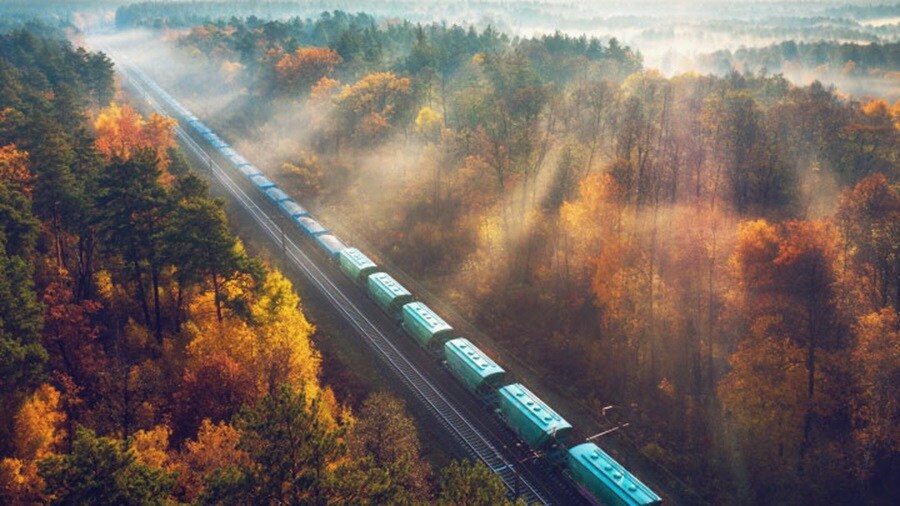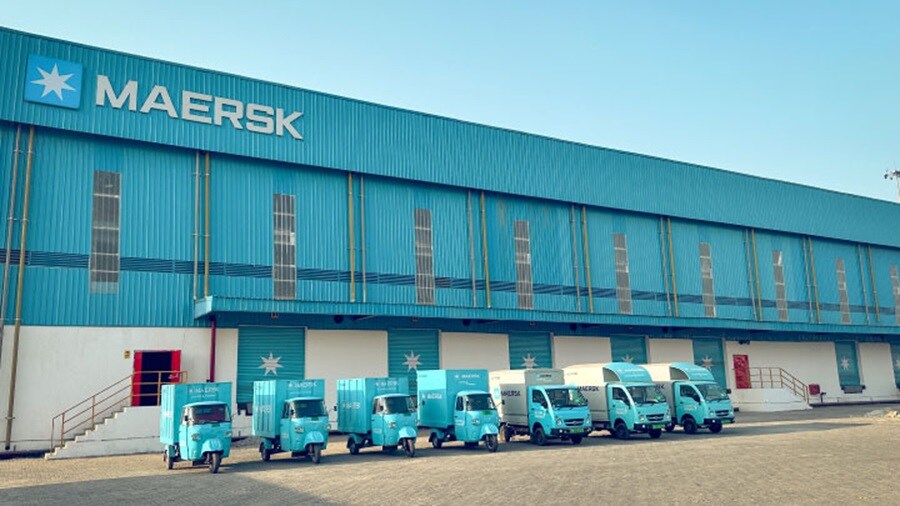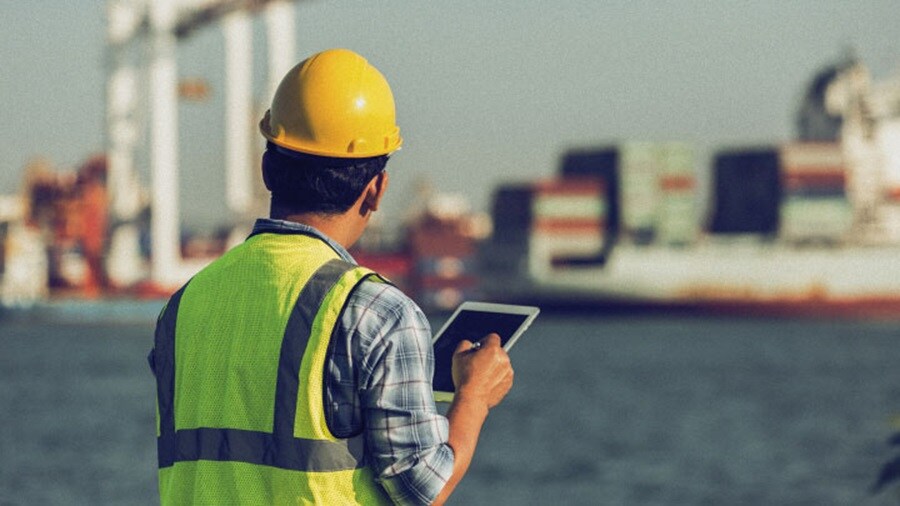The pressure on FMCG companies to decarbonise their inland supply chains is mounting. Despite vehicles being more energy efficient today, CO2 emissions from . To counteract this, 19 EU countries have applied a and it looks likely more regulations will follow. FMCG companies need to remove carbon from their operations quickly – those with a head start will find the transition easier and less disruptive to profits and growth.
But it’s not just FMCG companies that have work to do here. The transport sector represents about , so logistics companies have a huge responsibility to drive decarbonisation initiatives too – for themselves and their customers. At Maersk, we’re taking a leadership position on this issue by providing flexibility and speed, an ecosystem model to reduce business’ carbon emissions, and increasing the use of clean fuel. Here’s how.

Flexibility and speed
Maersk Inland’s flexibility and speed help FMCG companies drive efficiency throughout their supply chains, aiding decarbonisation without sacrificing product availability.
By using Maersk Inland, you can seamlessly move between train, barge, and truck, through a single point of contact, optimising the energy efficiency of your supply chain.
Not to mention, this flexibility gives FMCG companies the ability to outsmart disruptions. Maersk’s recent investment in an electrified rail line between Valencia and London, for example, has helped ease supply chain bottlenecks while reducing the carbon footprint of products that our customers in Spain sell.
Our rail transportation offers more than 90% lower CO2 emissions than a truck on the road and frees Spanish exporters from the driver scarcity and road bottlenecks.

A new ecosystem
It’s widely accepted that large-scale climate progress is going to come from large-scale changes and innovations. In other words, an ecosystem of new technologies and new processes is needed to drive decarbonisation. That’s why Maersk is building one.
By 2050, will come from technologies that are currently at the demo or prototype phase. Maersk’s recent innovations include:
- Piloting clean fuel alternative biofuels and electrification in heavy-duty trucking, such as the in North America.
- A green logistics warehouse in Denmark, which is the first of its kind to emit zero direct emissions from operations.
- A pilot in Japan to use renewable biodiesel for container drayage, aiming to reduce carbon emissions by up to 80% based on lifecycle analysis.

Clean fuel
Arguably, clean fuel is the cornerstone of decarbonisation. But although the use of it is gaining momentum, there’s still a challenge to scale supply to meet global demands.
To overcome this, huge effort and collaboration are needed across the value chain.
Nevertheless, Maersk has made meaningful progress at sea. The investment into a feeder vessel that uses entirely green methanol is set to go into operation this year.
Now, we’re bringing sustainability into action— Maersk is ready to scale inland.
无论您需要什么,东升国际 都可以随时为您提供帮助
提交此表,即表示我同意通过电子邮件接收 A. P. 穆勒-东升国际集团及其关联公司接收物流相关东升国际 和营销信息更新。我了解我可以随时通过点击退订链接,取消接收此类东升国际推送信息。如需查看东升国际 会如何处理您的个人信息,请查阅。
